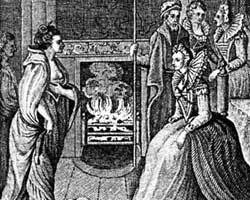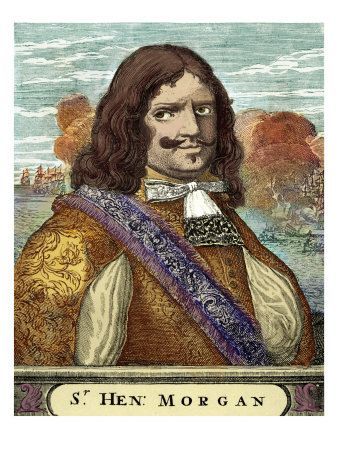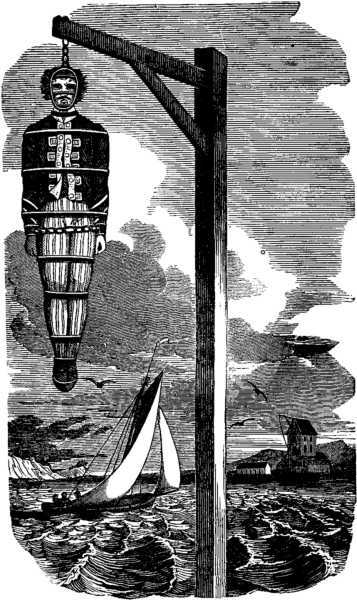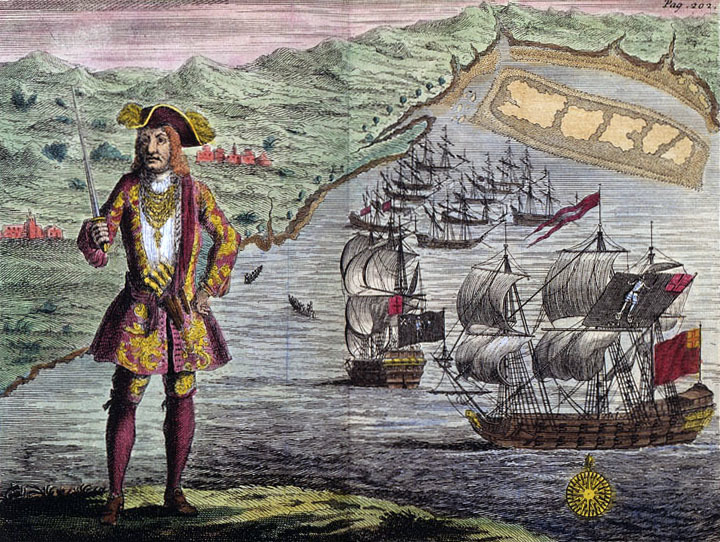Early Pirates & Privateers
From Tudor Era Pirates to Commissioned Privateers at the Dawn of the Golden Age of Piracy

Grace O'Malley
Grace O'Malley (1530-1603)
The leader of the O’Malley clan, Grace O'Malley would attack British strongholds and estates of Irish nobles who had allied themselves with the British by sea. Her intimate knowledge of the Irish coastline allowed her fleet to slip away before any retribution could be taken.
She infamously petitioned Queen Elizabeth directly for the release of her sons and brother from the custody of the English governor of Connacht. Elizabeth not only granted her request but also removed the governor from his post. The conversation reportedly had to be conducted in Latin as Grace refused to speak English and Elizabeth didn't speak Irish.
O’Malley has been a key figure in numerous songs, novels, and plays in Irish literature, and was also used by Irish bards as the personification of Ireland.

Henry Morgan
Henry Morgan (1635-1688)
Henry Morgan was a Welsh privateer who ultimately became the lieutenant governor of Jamaica. He received a letter of marque to attack Spanish Vessels in 1667. One of the men who served under him during his campaign against Spanish settlements in Panama was Alexandre Exquelmelin, whom Morgan sued for libel for his account of Morgan's treatment of his sailors in Exquelmelin's book The Buccaneers of America.
Morgan was said to be the inspiration for Rafael Sabatini’s Captain Blood and is referenced in many film, literature, and television works on the Golden Age of Piracy.

William Kidd
William Kidd (1654-1701)
William Kidd was a Scottish privateer and pirate who received a commission to hunt down pirate ships as well as French vessels in the Indian Ocean. However, his reputation for brutality amongst
his crew led to him being accused of piracy himself. Supposedly, he had buried a portion of the treasure he had recovered from his raids and intended to use that as a bargaining chip. He was ultimately executed for piracy, although there is still speculation about whether or not he himself was a pirate.
A song was written in 1701 known as “Captain Kid’s Farewell to the Seas” seems to be largely responsible for the idea that pirates bury large caches of treasure, which has been included in many foundational fictional works about the Golden Age of Piracy.

Bartholomew Roberts
Bartholomew Roberts (1682-1722)
Roberts was a Welsh pirate who operated in the Caribbean as well as off the coast of West Africa. According to historian Marcus Rediker, he was the most successful pirate during the Golden Age of Piracy in terms of the number of ships captured.
Roberts was also one of the four pirate captains mentioned in Treasure Island, as Long John Silver claims that the doctor who amputated his leg was one of Roberts’ crew.